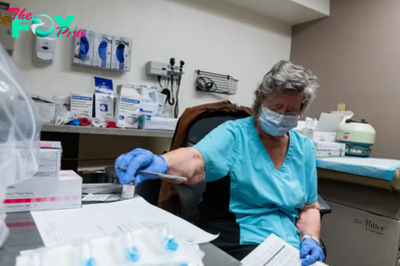Health
Colorado is at odds with the feds over prescription drug importation, documents show
Colorado’s attempts to import lower-priced prescription drugs from Canada appear to have hit a significant roadblock, according to state documents.
Late last month, Colorado submitted an amended application to the federal government for the program, which lawmakers established in 2019.
“We are one step closer to launching our Drug Importation Program,” Gov. Jared Polis, who has championed the program as part of his agenda to lower health care costs, said in a statement accompanying the announcement.
But sometimes tense back-and-forth correspondence between state and federal officials that was included as an appendix in the state’s application paints a different picture.
It shows Colorado and the federal Food and Drug Administration at odds over how Colorado could get a program approved and off the ground. And it also raises questions about whether federal approval will even matter if Colorado can’t get drugmakers and Canadian suppliers to work with it.
Colorado’s program would use a chain of importers and exporters to bring in prescription drugs from Canada to be sold at lower prices in Colorado pharmacies. These are the same drugs available now in the United States, but sold at often dramatically lower prices in Canada.
Here’s the rub, though: In letters and phone calls, officials from the state’s Department of Health Care Policy and Financing told the FDA that Canadian drug wholesalers all have provisions in their contracts with manufacturers “that expressly prohibit the exportation of their products to the U.S.”
According to meeting minutes from a June teleconference between the state and the FDA: “Wholesalers in Canada are not willing to put their businesses at risk by selling without the permission of manufacturers. None of the manufacturers have agreed to such proposals from Colorado so far.”
The correspondence was first reported by KFF Health News, which has been tracking state efforts across the country to set up drug-importation programs in order to lower prescription drug costs for their residents.
☀️ READ MORE
As states, including Colorado, target disavowed “excited delirium” diagnosis, police groups push back
Colorado eating disorder patients say they’ve been subjected to nude weigh-ins, forced to eat non-vegan foods
Some of the 1,400 patients of a Western Slope clinic are still struggling to find care a month after its abrupt closure
In a statement to the outlet, HCPF executive director Kim Bimestefer said, “While we continue to reach out to manufacturers to ask them to do the right thing for consumers, employers and taxpayers, we are also working with the FDA for additional guidance on how to best navigate sourcing drugs.”
A spokesman for HCPF told The Sun that he had nothing to add beyond the statement.
22 drugmakers declined to participate or did not respond
HCPF officials included in their correspondence with the FDA a list of 23 drugmakers they had reached out to. Of those, 22 either declined to participate in the state’s importation program or did not respond to multiple requests. One request is listed as “pending.”
The state has also been stonewalled in working with Canadian wholesalers. The wholesale market north of the border is dominated by the U.S.-based titan McKesson, which controls 80% of the market in Canada, according to the state.
“Colorado was unable to find someone at McKesson who would talk to them,” the June meeting minutes state.

The state has instead been trying to work with smaller wholesalers, who all raised concerns about violating their contracts with manufacturers and also about the impact an importation program would have on Canada’s drug supply chain.
This puts Colorado in a real bind because the FDA wants to see more specifics before approving Colorado’s program. But Colorado officials say they can’t hammer out those specifics without first receiving the FDA’s backing.
“We believe there is a foundational disconnect between the (FDA) rule and what is practically required to secure Canadian drug supply,” Bimestefer wrote in a letter to the feds in May.
“It has been made clear that potential partners will be more interested in committing to participate once our program has been approved by the FDA,” Bimestefer wrote in a separate letter last March.
The FDA has so far approved one state’s application for a drug-importation program. But that state, Florida, has not yet begun importing drugs and still faces hurdles to doing so — for instance, it must submit a “pre-import request” to the FDA for every drug it intends to import.
-

 Health9h ago
Health9h agoThe Surprising Benefits of Talking Out Loud to Yourself
-

 Health11h ago
Health11h agoDoctor’s bills often come with sticker shock for patients − but health insurance could be reinvented to provide costs upfront
-

 Health1d ago
Health1d agoWhat an HPV Diagnosis Really Means
-

 Health1d ago
Health1d agoThere’s an E. Coli Outbreak in Organic Carrots
-

 Health2d ago
Health2d agoCOVID-19’s Surprising Effect on Cancer
-

 Health3d ago
Health3d agoWhat to Know About How Lupus Affects Weight
-

 Health6d ago
Health6d agoPeople Aren’t Sure About Having Kids. She Helps Them Decide
-

 Health6d ago
Health6d agoFYI: People Don’t Like When You Abbreviate Texts


























